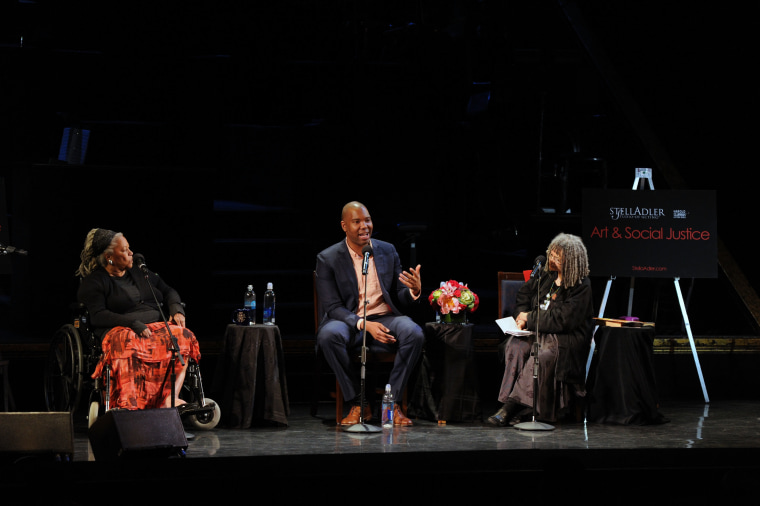
Three literary greats, Toni Morrison, Sonia Sanchez, and Ta-Nehisi Coates, took the Broadway stage in a discussion about art and social justice.
The Stella Adler Studio of Acting hosted the event at the Ambassador Theatre, which on other nights is the home to the musical "Chicago."
All three received the Marlon Brando Award for excellence in the arts and commitment to social engagement.
The discussion began with a minute of silence for the tragedy in Orlando.
"We do have to speak out don't we?" Sonia Sanchez said, stressing the danger of letting people get away with hate speech in their daily lives.
"When we let that happen we produce people who think they have a right to kill," Sanchez said.
RELATED: OpEd: We Cannot Let Hate Have the First, Last, or Loudest Word
Coates, the bestselling author of "Between the World and Me," admitted he was "a little overwhelmed" to sit on the stage among the very women who influenced his studies during his time at Howard University in Washington, D.C.
"When you got to Howard," Coates said, "they give you this whole thing about people whose footsteps you were following in."
Toni Morrison, esteemed novelist and Nobel Prize winner, and Sonia Sanchez, poet and longtime social activist, were two authors that he loved to pore over in the campus library.
"We are what we are what we never think we are," Coates recited from Sanchez's poem "Personal Letter No. 3."
Morrison expounded on what drew her to writing. She had a mission to create work that included people who looked like her—an attribute missing from the books she read growing up.
The literary legends remembered Muhammad Ali. Morrison edited Muhammad Ali's first book, "The Greatest." She recalled him often giving his attention to the men in the room, ignoring her inquiries because of her gender. Over time, she was able to command his respect, as she learned that he would defer to an authoritative, motherly figure. So that's what she became.
RELATED: Essay: What Muhammad Ali Taught Me About My Faith and Identity
"Ali would get tired of signing and he wouldn't tell you," Morrison said. "So I would have someone bring him a baby." Letting Ali play with the baby was a silent way for his hands to rest in between signatures.
Though Coates didn't know Ali personally, he spoke to his influence.
"All I can say is I think we are always, as African-Americans, under some sort of pressure to conform ourselves in ways that won't bring bodily harm to ourselves or our children," Coates said.
"There's a whole sort of performance we do to put on our best face for folks," he said. "To see somebody [Ali] so profoundly reject that is the most powerful thing."
